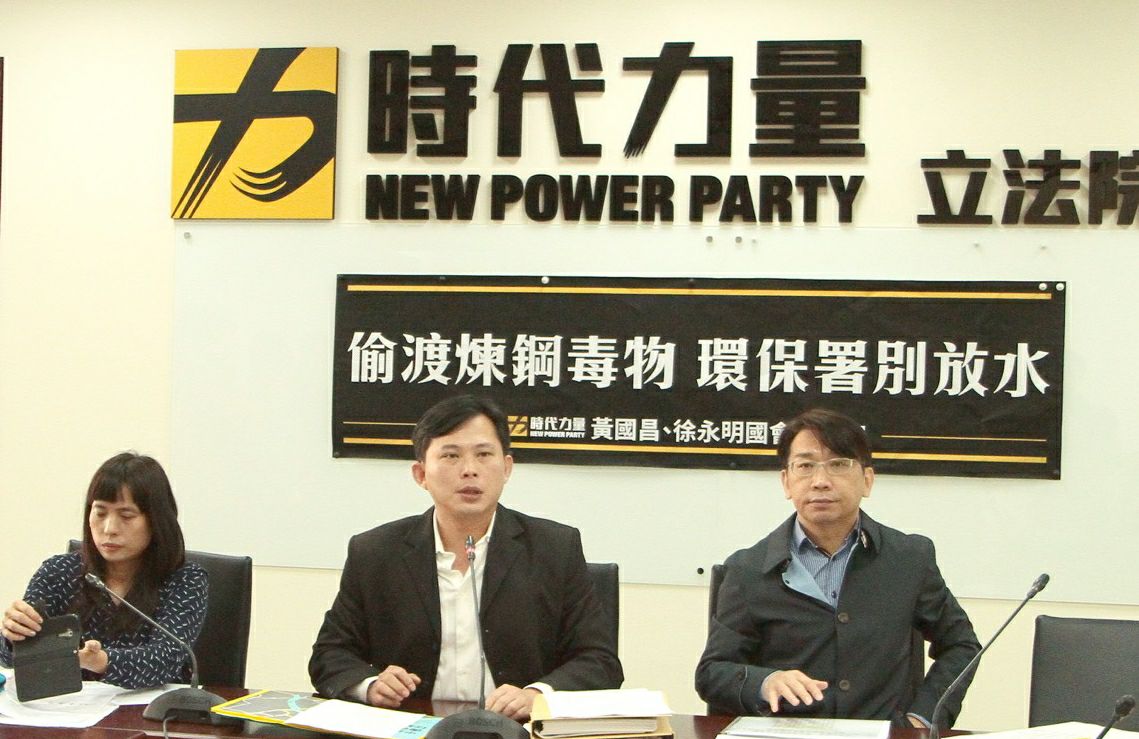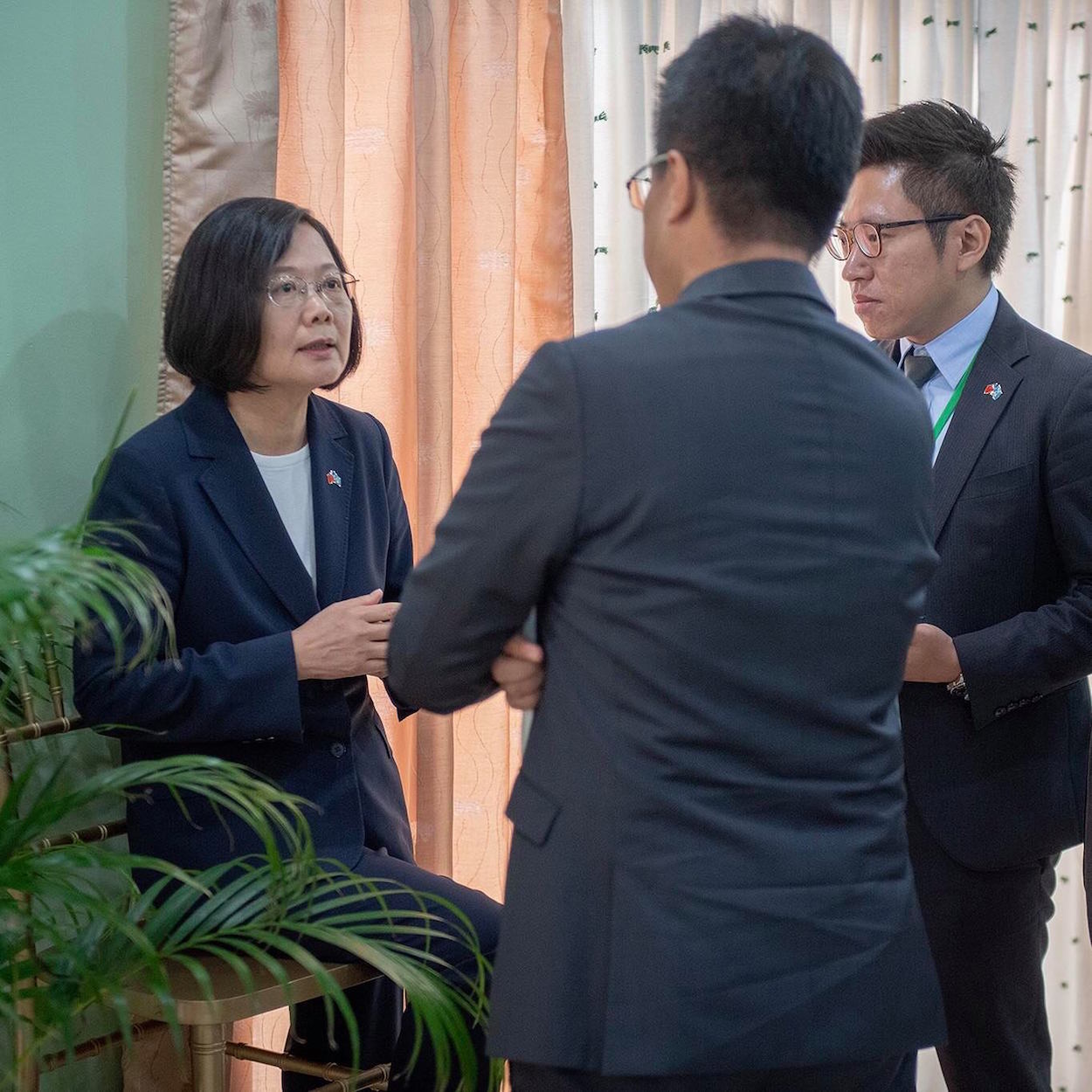by Brian Hioe
語言:
English
Photo Credit: KCS/WikiCommons/CC
A MAJOR CONTROVERSY facing the Tsai administration has broken out following the revelation of a cigarette smuggling scandal involving National Security Bureau security agents that participated in president Tsai Ing-wen’s recent trip to America and overseas Caribbean allies of Taiwan.
National Security Bureau security agent Wu Tsung-hsien, who accompanied Tsai on the trip, is accused of smuggling up to 9,800 cartons of cigarettes—which is over 2 million individuals cigarettes—on the China Airlines plane that Tsai took on the way back from a stopover in Denver. National Security Bureau security agent Chang Heng-chia is also believed to have been involved, with Chang and Wu appearing to be the primary focus of the investigation to date.
 China Airlines’ headquarters in the Taoyuan International Airport. Photo credit: watson88/WikiCommons/CC
China Airlines’ headquarters in the Taoyuan International Airport. Photo credit: watson88/WikiCommons/CC
Wu placed an order for the cigarettes three days before the trip through China Airlines’ duty-free shop and the cigarettes were brought back from Taoyuan International Airport in five trucks which tailed Tsai’s entourage. The cigarettes were stored after the order was placed in storage facilities belonging to China Pacific Catering Services, a subsidiary of China Airlines.
Wu purchased the cigarettes by placing five orders using a single credit card, the orders totaling over 6 million NTD. It has been questioned as to why Wu was in possession of a credit card with a credit limit upwards of six million NT, well above the credit limit of what the credit limit that should be granted to someone with the salary of a National Security Bureau official. Wu reportedly was allowed to place the order because he deposited six million NT into his bank account beforehand. Huang Kuo-chang alleges that the trucks used to transport the cigarettes back from Taoyuan International Airport belonged to the Presidential Office.
Wu and his collaborators likely hoped to resell the cigarettes at full price in Taiwan, in contravention of laws that limit the number of cartons that can be sold to individuals who are not licensed tobacco sellers. Given the scale of the smuggling operation, Wu is thought to have had collaborators in the National Security Bureau and China Airlines. Two hundred cartons were ordered by other passengers on the flight.
Although Wu was arrested at Taoyuan International Airport customs, controversy regarding the smuggling operation broke out after NPP legislator Huang Kuo-chang publicized the incident during a press conference. National Security Bureau chief Peng Sheng-chu has resigned to take responsibility for the actions of his subordinates, with China Airlines chair Hsieh Shih-chien also facing calls to step down. Wu and Chang’s rooms at National Security Bureau dormitories have been searched by police.
Some reports suggest that Wu may have been acting on behalf of superiors at the National Security Bureau, with more than fifty involved in the smuggling operation. Presidential Office secretary-general Chen Chu has denied accusations in the media that she is implicated in the scandal, threatening to sue individuals that allege this. President Tsai Ing-wen has also denied any presidential role in the smuggling operation, though Tsai came under censure because of initial comments that were seen as downplaying the scale of the smuggling operation by referring to the incident as a case of over-purchasing cigarette orders.
 NPP legislator Huang Kuo-chang (center). Photo credit: Huang Kuo-chang/Facebook
NPP legislator Huang Kuo-chang (center). Photo credit: Huang Kuo-chang/Facebook
China Airlines being a state-owned enterprise through the China Aviation Development Foundation as well as the Republic of China’s national carrier, at stake in the scandal would be the shadowy nexus of de facto state-owned enterprises and the central government. It has been alleged that government officials taking advantage of duty-free purchases to smuggle items into Taiwan is a practice dating back to previous presidential administrations, well back into authoritarian times, as a means of rewarding political loyalty among government officials close to the president.
Reportedly, more than 1,000 cartons of cigarettes were ordered on nine out of 26 state visits carried by China Airlines in past decades, although the practice is reported to have become more frequent after 2014. 41,904 cartons of cigarettes were ordered on state visits since 2006.
As such, in order to clear up whether this is the case, China Airlines has been ordered to hand over records from past decades to the Ministry of Transportation and Communications. China Airlines originally attempted to only produce records going back to 2013, claiming that records prior to 2013 were unable to be found after a system upgrade. Data from 2006 to 2013 was later retrieved after twenty China Airlines employees were assigned to investigate.
Swift action from the Tsai administration will likely be needed if it is to prevent accusations of corruption from sticking to the administration as a whole. Despite that such smuggling practices may originate from KMT presidential administration, not only will Tsai face criticisms for not doing enough to clear up such practices, but it is likely that the KMT will seize upon the scandal, to allege that the Tsai administration is simply attempting to pin the blame for its own corruption onto it.
Indeed, given that the scandal could perhaps endanger Tsai’s chances at reelection next year, with Taipei mayor Ko Wen-je suddenly overtaking Tsai in recent polling, Huang Kuo-chang has faced much backlash from members of the pan-Green camp and even within elements of his own party for making the smuggling scandal public. With it being a question as to whether the DPP and NPP will cooperate in next year’s legislative elections, DPP and NPP relations may be hurt by the scandal, with DPP city councilor Wang Hao-yu (王浩宇) having a particular axe to grind against Huang and making a number of allegations about Huang’s political ambitions.
 Taiwanese president Tsai Ing-wen (left). Photo credit: Tsai Ing-wen/Facebook
Taiwanese president Tsai Ing-wen (left). Photo credit: Tsai Ing-wen/Facebook
As Huang has been strongly critical of the notion of the NPP cooperating with the DPP, threatening to withdraw from the party if the NPP and DPP cooperate, some believe that Huang’s aim was to deliberately sabotage relations between the NPP and DPP. That being said, Huang, the former chair of the NPP, is likely increasingly viewed as a loose cannon within the party after actions such as independently organizing a rally against Chinese influence in Taiwanese media with pan-Blue leaning live streamer Holger Chen instead of with the rest of the party.
It is likely that memory of the scandal will eventually fade, given the nature of the Taiwanese news cycle. That being said, decisive action is needed by the Tsai administration if it is to avoid the scandal casting a shadow over its chances of being reelected.

